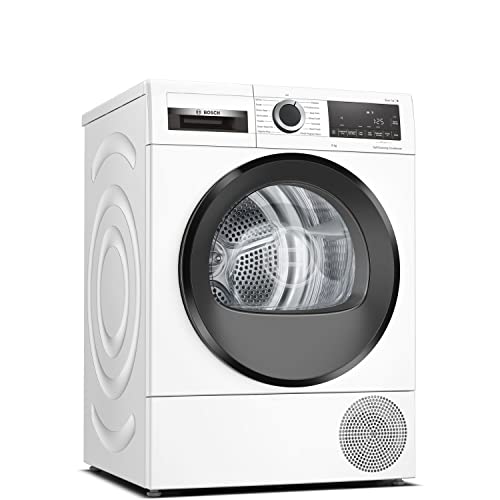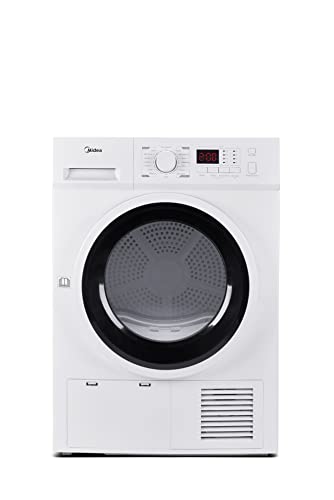5 Killer Quora Answers To Tumble Dryers Heat Pump Vs Condenser
페이지 정보

본문
 Heat Pump Vs Condenser tumble dryer with heat pump Dryers
Heat Pump Vs Condenser tumble dryer with heat pump DryersTumble dryers come in a variety of forms. John Lewis has vented and condenser tumble dryers in stores and online, with brilliant sales advisors to help you find the perfect one for your needs.
Condenser models don't require a vent outside and can be placed anywhere in the home. Condenser units remove moisture by transferring hot air into a separate area and then turning it into liquid water. This is then stored in a container that needs to be cleaned regularly.
The dryers that use heat pumps are more efficient.
The modern laundry world has seen a variety of innovations that include heat pump tumble dryers. These dryers are both efficient and gentle on fabrics. These dryers are also more flexible than condenser and vented models in terms of placement.
The heat pump dryer works by capturing warm air and recycling it into dry clothes. This is done by the combination of an air conditioner and a dryer. This is extremely efficient in energy use and doesn't require venting. This makes them a great option for those looking to save on their electric bills and be eco-friendly.
Traditional dryers, on the other hand, employ fans that blow hot air over the laundry that is tumbling. The hot air is vented to the outside and replaced with room temperature air. The result is that a conventional dryer consumes a lot of electricity to dry laundry. In time, this could result in higher utility costs. Heat pump dryers are much more efficient in energy use and can cut costs for utilities by as much as 50 percent.
A dryer with a heat pump is more sustainable since it uses less water than traditional dryers. This is because it does not need to use an additional tank for its coolant, like a gas dryer. It recycles the warm air from the heatpump dryer's drum.
A drying system that uses a heat pump is also advantageous because it does not require a duct. This can be a hassle for those who live in smaller apartments and homes without an appropriate laundry room. This eliminates the need to clean the duct every six months, as is often required with traditional dryers. This can save a lot of time and effort for those who are already busy.
Although a dryer with a heat pump may be more expensive than a vented dryer in the beginning but it could help families save money in the long haul because of its low operating costs. Peter McPhee is a senior director at the Massachusetts Clean Energy Center and estimates that his family could save hundreds of dollars a year with their heat-pump drying system.
When choosing a heat-pump dryer choose one that offers sensors that can detect when your laundry is finished and stops the cycle. This can help you save electricity costs and reduce over-drying which can harm your fabrics. Find a dryer that has an lint filter as well as a condenser. These parts must be maintained regularly to ensure maximum performance.
They are also quieter
The newer tumble dryers, particularly those with heat pump technology, are quieter. They are able to do this because they circulate warm air inside the laundry rather than blowing it out. This makes them better to be used in open plan spaces and smaller homes. They are also less harsh on clothing. Because of the lower temperatures, it may take a bit longer for them to dry.
The biggest drawback with dryers that use heat pumps is they are more expensive to purchase than vented tumble dryers. This can be a major issue for households that are price-conscious. Despite this, they conserve energy in the long run and are much more eco-friendly than other types of tumble dryers. They also are gentler on your clothes, meaning they are less likely to snag or shrink them. They are also more user-friendly and come with more programs than traditional vented dryers.
The models that use heat pumps are the best option for homes that have small space or aren't able to make structural changes. This can be particularly helpful for those who live in an apartment or renting your home. They're also a great choice for those who are sensitive and want to stay clear of mildew or mold.
Heat pump dryers work similarly like heat pumps, tumble dryers heat pump vs condenser taking vapor from your clothes and then converting it into water. The evaporated vapor is recycled back into the dryer. Since it consumes less power than conventional tumble dryers, it's an eco-friendly option. They are also extremely quiet, allowing you to relax while your washing finishes.
The tumble dryers heat pump vs condenser (http://Shinhwaspodium.com/bbs/board.Php?bo_table=free&wr_id=1803652) dryers with heat pumps have some disadvantages, including the higher cost of initial installation and a slower drying time. However their energy efficiency, superior and gentle approach to cleaning makes them worth the extra money in the long term. These attributes make heat pump tumble dryers an excellent option for busy families, and there are models to suit every budget. However, it's important to consider your usage patterns and the total costs of the ownership (purchase cost and running expenses) before deciding on the type of tumble dryer is right for you.
The size of the garment is more flexible
You should consider a dryer with a heat pump if you want a dryer that is more efficient in its energy usage and gentler on your laundry. These appliances dry your laundry with recycled hot air, thereby saving you money over time. These machines are not only more sustainable but can also be used in rooms with good ventilation without the need for vents outside. They also take up less space than vented dryers. However, they may take longer to dry your laundry than vented dryers.
The traditional vented dryers heat the drum using gas and then expel moisture. While they are less efficient than condenser and heat pump models, they use less electricity than other dryers. They are also an excellent choice for homes that have very little energy usage.
Condenser dryers and heat pumps utilize a heat exchanger in order to convert warm air into liquid, reducing their energy consumption by around half. They also have a lower noise level than other tumble dryers, and some models come with a dampening system to reduce noise operating levels. They can be stacked together with washers to save space, and many models can be mounted on the wall.
Heat pump tumble dryers make use of a combination solar and conventional energy for their laundry cycle. It can cut energy consumption by up to half as compared to vented dryers. It can be used in conjunction with a heater to improve efficiency. Heating systems can be expensive when employed for large quantities of laundry.
While they can cost more upfront than vented dryer, heat pump tumble dryers are less expensive to run and provide greater flexibility. They are also easy to operate and have various programs, including anti-crease and ironing functions. These dryers can be used in a variety of rooms and are often recommended to those who live in apartments. They're an excellent option for people living in areas with poor air quality or for those who want to minimize their carbon footprint. The best tumble dryer will depend on the type of laundry you have and your budget as well as the space available.
The price is higher
Heat pump dryers dry your clothes with a combination of cooling and heating technologies. They are more efficient than vented tumble dryers and can cut down on your electric bills. They are also quieter and gentler on your clothes. They are more expensive initially than vented models. The energy savings offset the price difference.
Heat pump dryers have an exclusive heat exchange system that re-uses the hot air to warm your laundry. This can reduce energy consumption by up to 15 percent. They can also save time and money by sensing and altering the cycle based on the amount of moisture present in your laundry. They also have less environmental impact than vented tumble dryers.
The Beko DPHR8PB561W Heat Pump Tumble Dryer, 8Kg is an excellent example of a quiet and efficient heat pump dryer. It is perfect for small to medium sized homes. It is A+++ Rated and comes with an enormous capacity to manage your normal washing requirements. It is also extremely easy to use since it has a range of automatic programs that do the work for you. It determines how wet your laundry is and then determines the optimal drying time for each load. The dryer will also inform you when it is finished, so you don't need to worry about drying your clothes.
Vented and condenser tumble dryers release moist air into the laundry room or outdoors through an extraction hose. However, heat pump tumble dryers don't require an extraction hose as they reuse the heat of the air. They circulate the warm moist air, and then store it in the form of a reservoir or funnel it into the drain.
It takes longer for them to dry your laundry than vented dryers. However the longer time is worth it due to their energy efficiency and a gentler method of drying your laundry. They are more environmentally friendly and cost less to run over the long term than vented dryers.

- 이전글What's The Job Market For ADHD Titration Waiting List Professionals Like? 24.05.09
- 다음글The 10 Most Terrifying Things About Titration Service 24.05.09
댓글목록
등록된 댓글이 없습니다.